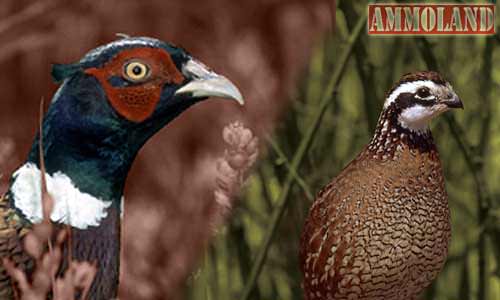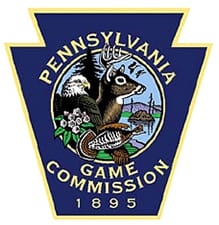

Pennsylvania -(Ammoland.com)- Avian influenza (AI), commonly known as “bird flu,” is a respiratory disease of birds caused by an influenza type A virus.
These viruses can infect poultry (chickens, ducks, quail, pheasants, guinea fowl, and turkeys) and some wild bird species (such as ducks, swans, and geese). Yet, they impact poultry and wild birds in different ways. Wild birds can carry the AI viruses but usually do not get sick from them. However, AI in poultry is typically contagious and can make some domesticated birds very sick or even cause death.
There are many different subtypes of influenza A viruses. These subtypes differ and are classified based on a combination of two groups of proteins on the surface of the influenza A virus: hemagglutinin or “H” proteins, of which there are 16 (H1–H16), and neuraminidase or “N” proteins, of which there are 9 (N1–N9). Many different combinations of “H” and “N” proteins are possible. Each combination is considered a different subtype and can also be broken down into different strains. AI viruses are further classified by their pathogenicity – the ability of a particular virus strain to produce disease in domestic chickens.
Highly pathogenic avian influenza (HPAI) virus strains are extremely infectious, often fatal to domestic poultry, and can spread rapidly from flock to flock. Low pathogenicity avian influenza (LPAI) virus strains occur naturally in wild migratory waterfowl and shorebirds without causing illness. The AI viruses that cause concern in poultry and wild birds are HPAI viruses and any virus designated as H5 or H7, regardless of pathogenicity. This is because H5 and H7 viruses are capable of converting from LPAI to HPAI.
For more information about AI, contact your Federal, State, or local animal health officials. Contact information for the U.S. Department of Agriculture (USDA) Veterinary Services office in your State is available on USDA’s website at www.aphis.usda.gov/animal-health/state-offices. If you have any questions or concerns about wild birds, contact your local USDA Wildlife Services office at 1-866-4-USDA-WS.
There’s a lot you can do to reduce the risk of exposing your poultry or pet birds to AI. Basic safety precautions can keep disease from spreading. Please follow the guidance below to help protect your birds and yourself.
Protect Your Birds
- Dress your game birds in the field whenever possible.
- If you must dress birds at home, clean them in an area your poultry and pet birds cannot access. Ideally, there would be a solid barrier between your game cleaning area and where your birds are housed.
- Keep a separate pair of shoes to wear only in your game cleaning area. If this is not possible, wear rubber footwear and clean/disinfect your shoes before entering or leaving the area.
- Use dedicated tools for cleaning game, whether in the field or at home. Do not use those tools around your poultry or pet birds.
- Always wear rubber gloves when cleaning game.
- Double bag the internal organs and feathers. Tie the inner bag, and be sure to take off your rubber gloves and leave them in the outer bag before tying it closed.
- Place the bag in a trash can that poultry and pet birds cannot access. This trash can should also be secure against access by children, pets, or other animals.
- Wash hands with soap and water immediately after handling game. If soap and water are not available, use alcohol wipes.
- Wash all tools and work surfaces with soap and water. Then, disinfect them.
Protect Yourself
- Do not harvest or handle wild birds that are obviously sick or found dead.
- Do not eat, drink, or smoke while cleaning game.
- Wear rubber gloves while cleaning game or cleaning bird feeders.
- Wash hands with soap and water immediately after handling game or cleaning bird feeders. If soap and water are not available, use alcohol wipes.
- Wash all tools and work surfaces with soap and water. Then, disinfect them.
- Avoid cross-contamination. Keep uncooked game in a separate container, away from cooked or ready-to-eat foods.
- Cook game meat thoroughly; poultry should reach an internal temperature of 165 °F to kill disease organisms and parasites.
